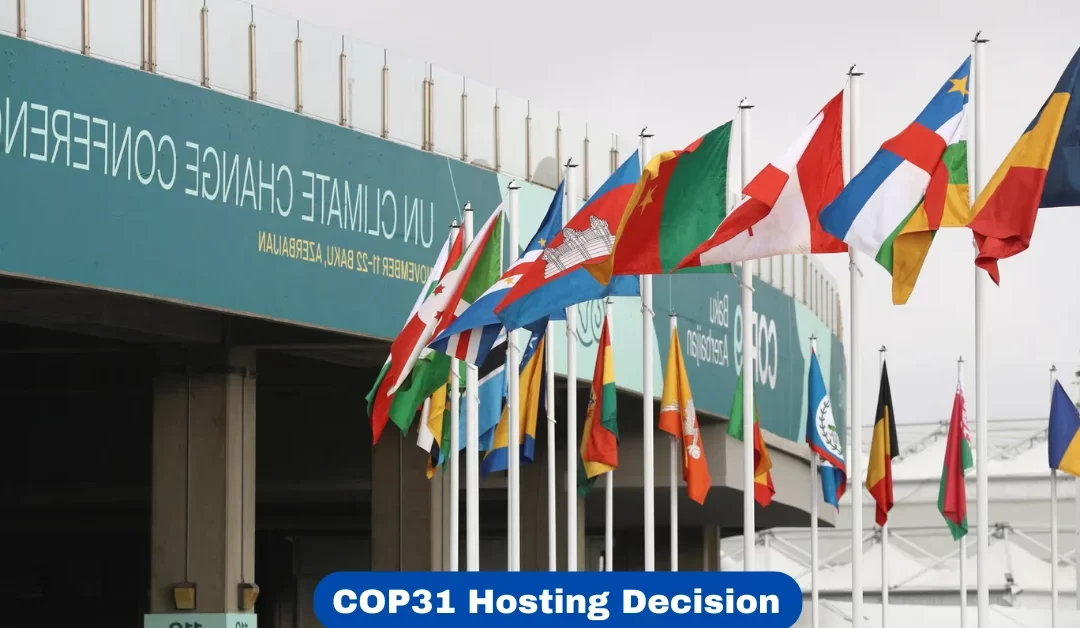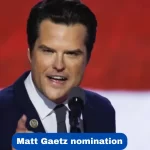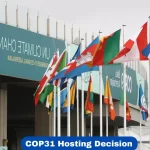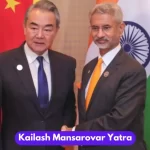As the 29th Conference of Parties (COP29) in Azerbaijan nears its conclusion, the spotlight is on a crucial decision: who will host the vital UN climate summit in 2026? Australia and Turkey are locked in a tight competition, each seeking the honor of hosting COP31. This decision holds immense significance as it will influence global efforts to tackle climate change and manage funds for developing nations to address climate impacts.
Why Hosting COP31 Matters
The 2026 climate talks will play a pivotal role in determining if the world can limit global warming as per scientific recommendations. It’s not just about hosting an event; it’s about leading the charge in finding solutions to one of humanity’s greatest challenges.
- Australia’s Bid with Pacific Nations
- Australia has proposed hosting the summit in partnership with Pacific nations.
- These small island nations are among the most vulnerable to climate change.
- Australia’s climate change minister, Chris Bowen, emphasized the Pacific’s strong support for this bid, highlighting the opportunity for these nations to have their voices amplified on the global stage.
- Turkey’s Compelling Case
- Turkey, classified as a developing country under UN guidelines, may garner backing from other nations in the same category.
- Turkish officials argue that their nation’s role as a non-major fossil fuel exporter makes their bid more climate-conscious.
- President Recep Tayyip Erdoğan reaffirmed Turkey’s commitment during a G20 meeting, signaling strong determination.
The Current COP29 Agenda
COP29 in Baku, Azerbaijan, is already dealing with high-stakes discussions about funding climate actions in developing nations. The primary focus is on creating a global financial framework to ensure poorer countries have the resources to:
- Reduce emissions
- Adapt to climate impacts like extreme weather
Financial Needs at a Glance:
- $1 trillion annually by 2030 is estimated to meet global climate goals.
- Developed nations propose contributions ranging from $200 billion to $300 billion annually, sourced from overseas aid budgets.
- Additional funding may come from private investments and new taxes on fossil fuels.
Evans Njewa, a negotiator for Malawi, has called for at least $900 billion in guaranteed public funding for least-developed nations, much of it in grants rather than loans.
Challenges in Achieving Consensus
The talks have revealed stark disagreements over how to mobilize and distribute funds. Rich nations are reluctant to commit to large sums without contributions from emerging economies like China and oil-rich states such as Saudi Arabia. Developing nations, however, argue that they need far more guaranteed financial support to meet the challenges of climate change.
Bowen acknowledged the complexity, stating, “We have heard demands ranging from $440 billion to $1.3 trillion. The split between grants and private investments remains unresolved.”
The Stakes for COP31 Hosting
Australia and Turkey’s bids highlight a broader regional balance. If Turkey wins, it would mark the fourth time in five years that a COP has been hosted in the Middle East or Central Asia. On the other hand, Australia has emphasized the need for more events in the southern hemisphere, as only six out of the 29 COPs have been held there so far.
Support for Australia’s bid comes not just from the Pacific but also from 23 out of 29 western European nations involved in the decision. However, UN climate decisions require consensus, and Turkey has made a strong case in recent weeks.
Voices from the Pacific
Leaders from Pacific nations, including Palau’s President Surangel Whipps Jr., have thrown their weight behind Australia’s bid. “This is a rare opportunity for the Pacific to help host the most important forum for our future,” Whipps said, urging global leaders to recognize the importance of this partnership.
The race to host COP31 reflects not just a desire for global recognition but also a chance to shape the world’s climate agenda. As COP29 wraps up in Azerbaijan, the decision remains uncertain. Whichever country is chosen will carry the heavy responsibility of ensuring that the 2026 talks drive real progress toward a sustainable future.































